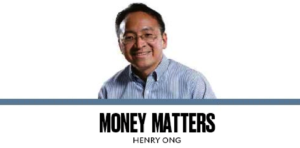Instead of fearing artificial intelligence (AI), a supposed threat to the country’s thriving business process outsourcing (BPO) industry, the Philippines can position itself as a global AI hub, Trade Secretary Ramon Lopez said.
In a recent chance interview, Lopez said the Department of Trade and Industry would soon launch an initiative to train the country’s IT and engineering graduates to create AI solutions for the global marketplace.
Lopez said the government could team up with successful Filipino technopreneur Dado Banatao to upgrade the skills of the country’s IT, science and engineering graduates.
The Philippines produces about 100,000 science and engineering graduates every year “but they will have to be trained in fast computing which is the expertise of Dado (Banatao),” Lopez said.
“That’s where we can excel because AI is knowledge. It’s programming and here you don’t need big machines, unlike in manufacturing. We have the strength because we have the manpower,” he said.
Banatao is the founder of PhilDev Foundation, a nonprofit organization that advocates to eradicate poverty through the benefits of science and technology.
Lopez said Banatao’s local office, Wave Computing, which is developing the AI Center of Excellence in the Philippines, could also be the government’s partner in unlocking the country’s potential.
“Before, our dollar revenues are from overseas Filipino workers: $25 billion (annually) produced by 12 million people. Then with BPO, we have $25 to $30 billion (annually) produced by one million people. AI can be the (key to the) next $30 billion even with only 1,000 or 2,000 people producing high-valued service. And they don’t need to leave the country,” Lopez said.
AI refers to the creation of intelligent machines and programs that work and react like humans. For instance, they can perform tasks like speech recognition, facial recognition, learning, planning and problem solving.
To pursue an AI road map, Lopez said the government would link up with various tertiary institutions, without restricting itself to only the top schools like UP, Ateneo and La Salle.
“I and Dado agree that this should be market-driven,” he said.—DORIS DUMLAO-ABADILLA


